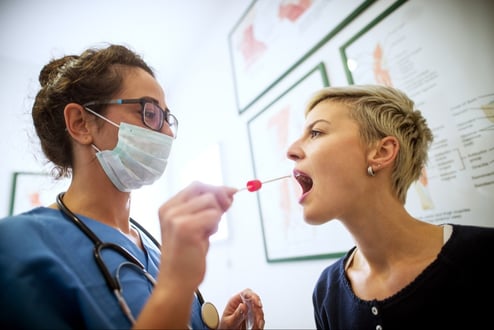Hereditary Breast Cancer Risk
Breast Cancer Risk
Who is at risk for breast cancer?
Every person is at risk for breast cancer. The average lifetime risk for breast cancer in women is about 13 percent. This means that one out of every eight women will get breast cancer in their lifetime, usually after age 60. Men can get breast cancer, however, the average risk for male breast cancer is very low, less than 1 percent. People with an in the genes listed below have a higher-than-average risk for breast cancer, often at a younger age. The risk varies based on multiple factors, including:
- age
- gender
- presence of a gene mutation
- personal and family history of cancer
- other risk factors
In the News
Is breast cancer hereditary?
About 10 percent of people with breast cancer have an linked to increased cancer risk. Inherited mutations in the genes below increase the risk for breast cancer and can cause cancer to run in families. Some of these genes also increase the breast cancer risk in men and people assigned male at birth. Genetic counseling and testing can help people learn if they are at high risk.
Other genes have been linked to an increase in breast cancer risk. Most of these are rare.
What else affects breast cancer risk?
Factors such as diet, weight, exercise, smoking, alcohol consumption, hormone exposure and environmental exposures can affect breast cancer risk in the general population and in people at high risk for cancer. More research is needed to understand how much these factors influence risk in people with inherited mutations.
Learn about breast cancer risk management and treatment
Learn about Risk Management Options
National expert guidelines for breast cancer risk management vary based on gene mutation and other factors that affect risk. Click on the button below to learn more about these guidelines.
Learn about Treatment Options
People diagnosed with breast cancer may have different treatment options based on , subtype, and genetic and results. Click on the button below to learn more about these treatment options.
